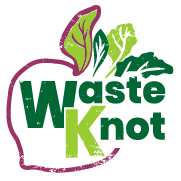When the mind slows down, something else comes through
In normal times, we supply surplus produce directly from farms to hospitality, catering and charities. However, since the COVID-19 crisis has forced the closure of all restaurants, pubs, bars etc, as well as creating an unprecedented demand on food redistribution charities, our efforts are now fully-focussed on getting as much produce to those in isolation, the vulnerable and low-income families through various partners such as Fare Share. Due to the logistics already being in place, we were able to carry-on providing fruit and vegetables through the Surplus with Purpose fund, enabled by DEFRA. Not only does this allow for the surplus to be rehomed, but it provides the farmer with a cost-neutral source of income ensuring that cash keeps flowing through the business at this difficult time, allowing the majority of labourers and admin roles to keep their jobs.
We’re in a unique position to work within the hearts of both the agriculture and the hospitality industries, allowing valuable insights into how they’re interlinked, the similarities, the differences and how each plays a vital role in the existence and survival of the other. The people that are embedded within the day-to-day running of operations of both sides of the coin are inherently passionate, forthright, driven and hardy. Running off these same sources of fuel means that, when adversity hits like it has done over the last few weeks, there is no end of determination, no option to relinquish and no limits to what can be achieved when the right mode of thinking is employed.
A key message behind Waste Knot is to challenge perceptions, to question the norm and to manoeuvre ourselves to better, more efficient, sensical ways of working with each other and nature. Never has there been a time where this is needed more. Speaking to key members of both industries, it is clear that this time has highlighted the need for us to examine, explore and react to our current ways of working. Whether that be our reliance on the global market, our readiness to travel without considering alternative options or our existence at living life at 100mph, this period is giving us the luxury of time to look in from the outside and to make judgments on how we can live better, more wholly, more gratefully and in harmony with the environment which we are so fortunate to be a part of.
We are all guilty of not being able to see the wood for the trees. And where would be without trees? There are opportunities presenting themselves which we must be aware of and refuse to forget the lessons we are learning; the ever-increasing importance of how we need, value and see each other, as well as how vitally important nature is to our mental and physical health. We must remember that, as a small island, we are constructed of the most brilliant of minds, attitudes and humour and lest we forget that we’re a sum of our parts. Working with each other, mindfully, and in harmony with what our shores can offer us, will be of paramount importance now and forevermore.

